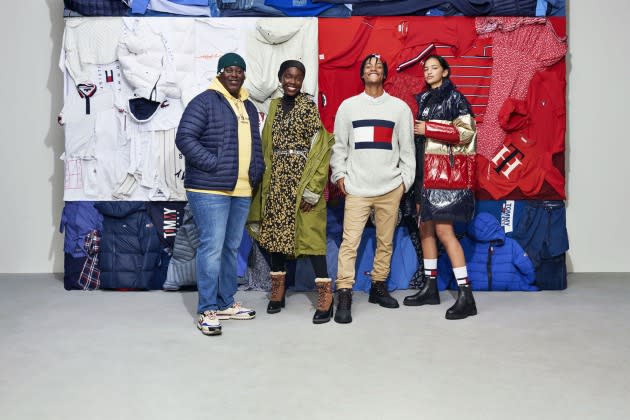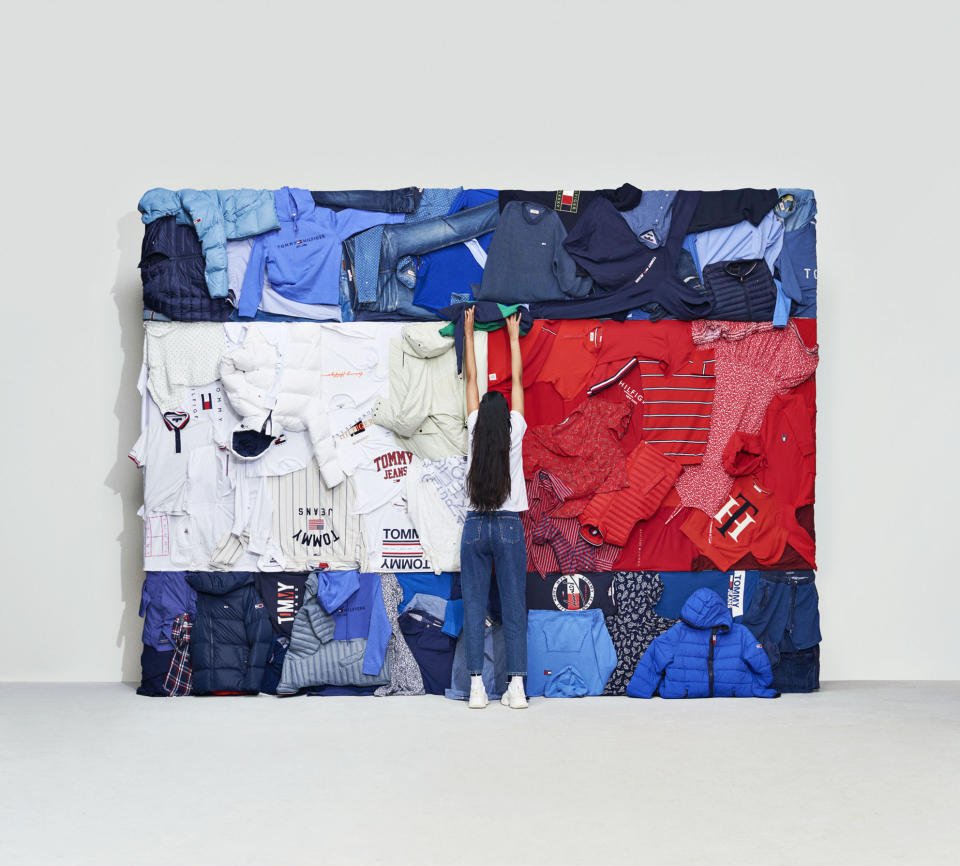Hilfiger Partners With ThredUp to Launch Resale Program in the U.S.
- Oops!Something went wrong.Please try again later.

Tommy Hilfiger is getting into the resale game.
Hilfiger, which is owned by PVH Corp., and ThredUp, one of the largest online resale platforms for women’s and kids’ apparel, shoes and accessories, are teaming up to introduce a new 360-resale program that will allow U.S.-based consumers the chance to clean out their closets and shop secondhand.
More from WWD
The program is enabled by ThredUp’s Resale-as-a-Service, which delivers scalable customizable resale experiences on behalf of leading brands and retailers.
The U.S. secondhand market was valued at $35 billion in 2021 and is expected to more than double by 2026, reaching $82 billion, according to ThredUp’s 2022 Resale Report, as reported.
“This partnership is our latest step on our journey to becoming a fully circular brand,” said Esther Verburg, executive vice president, sustainable business and innovation, Tommy Hilfiger Global and PVH Europe. “We’re excited to launch this program with ThredUp, which helps us create more value out of our existing product and connect with our consumers in a new way. The U.S. market is packed with circular potential, and together with ThredUp, we’re hoping to make a long-lasting difference.”

courtesy shot.
Tommy Hilfiger customers in the U.S. can generate a prepaid shipping label from tommy.thredup.com, fill any shippable box or bag with women’s and kids’ items from any brand in their closet, and Tommy Hilfiger men’s products, and ship it to ThredUp for free. If any of the women’s and kids’ items (any brand) are selected for resale and sell, or men’s items (Tommy Hilfiger only) are deemed eligible, customers receive Tommy Hilfiger shopping credit that can be used both online and in-store.
Jamie Reinhart, chief executive officer of ThredUp, said, “Tommy Hilfiger is an iconic and timeless brand. The brand’s products are made to withstand the test of time both with classic designs and durable quality, making resale a natural fit for the company. Tommy Hilfiger has made incredible strides in sustainability through their ‘Waste Nothing and Welcome All’ initiatives, and we’re honored to power their new resale program as they continue to make an impact.”
This partnership supports Hilfiger’s vision to “Waste Nothing and Welcome All,” and the company aims to be a fully circular brand by 2030. Joining forces with ThredUp is intended to bring new insights and build on previous initiatives to explore different circular business models to find a path to scale. The goals of the program include keeping products in use for longer, lessening the brand’s footprint and closing the loop without compromising the environment or style.
ThredUp sells value, premium and luxury brands at up to 90 percent off estimated retail prices. The company has processed over 125 million unique secondhand items from 35,000 brands across 100 categories.
For the most recent quarter, which ended March 31, ThredUp’s total revenues increased 31 percent to $72.6 million, up from $55.6 million a year ago. ThredUp also widened its losses to $20.7 million, compared with losses of $16.2 million during 2021’s first quarter.
Circularity has been a key initiative at Hilfiger. In its PVH Corporate Responsibility Report, issued this week, the company said for fiscal year 2021, it made its first pieces designed for circularity, which featured one material type to ease future recycling, and experimented with innovative materials such as mycellum and Vegea as leather alternatives. The company also explored a circular business model that was expanded as a pilot from the Netherlands to Denmark, Germany and France, diverting 110,792 pounds of textile waste from landfills since 2020. Through the pilot, products could be taken back, resold, repaired or transformed into new items.
Sign up for WWD's Newsletter. For the latest news, follow us on Twitter, Facebook, and Instagram.

